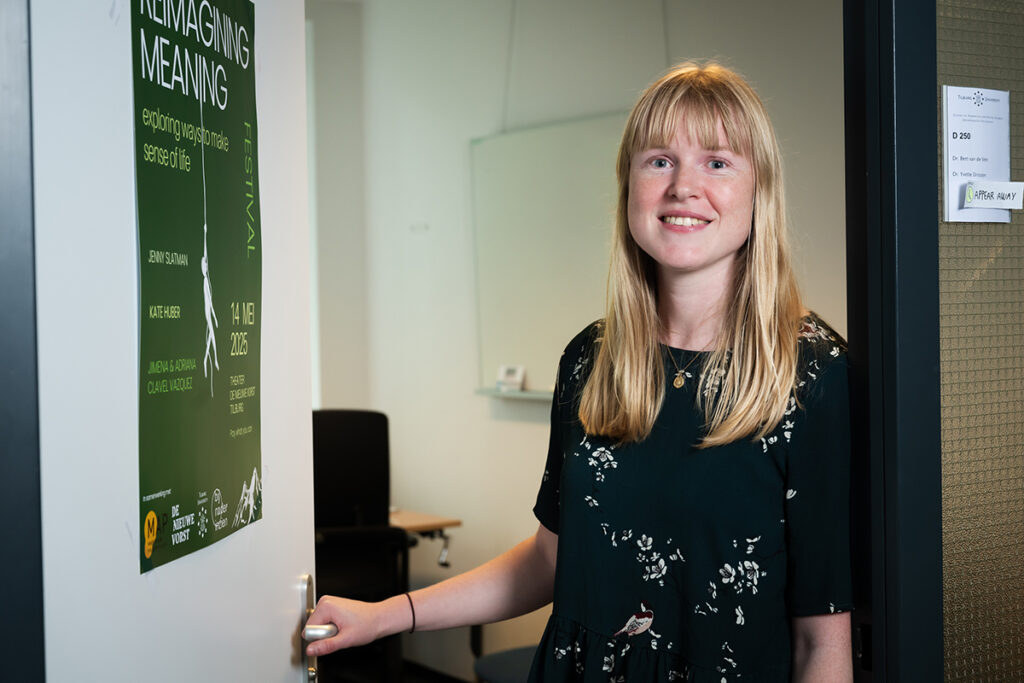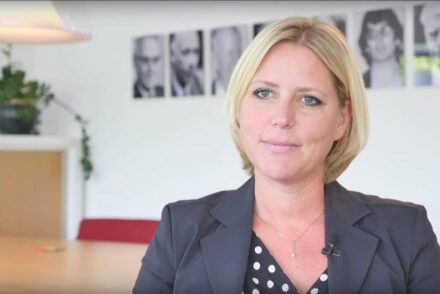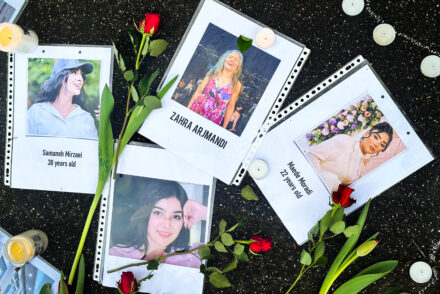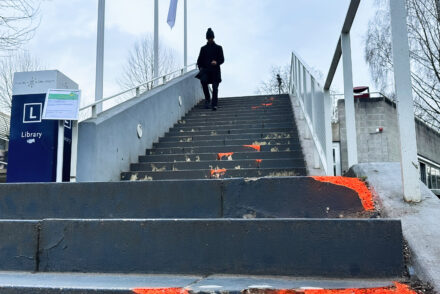Isn’t it ironic. Dissertation on disadvantages of competition wins a prestigious prize
With a dissertation on the disadvantages of competition, you can simply win a prize, philosopher Yvette Drissen shows by winning an Erasmus dissertation prize. ‘We too often assume that competition is the only option.’

Of course, it is a bit abrasive when you write a dissertation about the downside of a society that is focused on competition, and you promptly win a prestigious prize. Philosopher Yvette Drissen is the first to admit this: ‘It is of course ironic that I can receive a prize for this.’
‘To be honest, I only knew about the existence of this prize after my PhD,’ says Drissen. In other words, the prize did not have a ‘disruptive’ influence on the content or working method of her PhD research. She was not concerned with wanting to win, but with doing good research. Drissen is therefore honoured with the prize and is happy to accept it.
Drissen obtained his PhD in 2024 with the thesis When Success Becomes the New Normal: The Competitive Society and its Symptoms. With her research into the ethical consequences of competitive practices in social sectors – in the workplace, in politics, in the legal system and in academia – Drissen wants to challenge the self-evidence of competition and highlight alternatives.
Downsides
What matters in her research is that society have come to consider competition so normal that we take the dark sides for granted. Drissen lists a number of disadvantages: competition divides groups of people into winners and losers. And that has consequences for our self-image and for our social relationships because we always must compare ourselves with others.
How detrimental competition can be depends on the stakes, what is at stake for the participants. Higher profits often lead to higher losses: from invested costs or time that doesn’t yield a return to feelings of humiliation and inferiority.
In addition, competition can ‘corrupt’ certain practices because it is no longer about the content, but about the profit. An example of this is the NWO’s talent programme, in which many good proposals from starting researchers in the race for a coveted Veni grant are nevertheless rejected.
‘For the starting academics, there is a lot at stake. Writing a proposal takes a lot of time that is at the expense of the actual research, while your entire career can depend on it.’
Recognition
‘I don’t deny that there can be good sides to competition,’ says Drissen. Competition is even about something essentially human: ‘Every person is looking for some form of recognition, and in competition with others you can earn that recognition.’ She bases this on Jean-Jacques Rousseau, the Swiss-French philosopher.
Rousseau believed that ‘amour propre’, a form of self-love that people derive from the recognition of other people, can have a corrupting influence. People will behave differently to get recognition, Rousseau thought.
Yet this form of self-love is also important, according to Drissen. People can be happy with the intrinsic recognition for their achievement, but also strive for recognition because of the status it gives them, according to Drissen.
And sometimes there is nothing wrong with that. According to Rousseau, society is able to transform that form of self-love in a way that benefits society. Mutual competition then no longer leads to unhealthy competition or to a division into winners and losers, where the winners feel morally superior and the losers start to see themselves as inferior.
Olympic spirit
But can society do with less competition? For example, isn’t it naïve to give all participants in a game a medal, just as in primary school all children receive a prize? And isn’t the motto of the Olympic Games ‘participating is more important than winning’ hopelessly outdated in today’s competitive times?
‘Of course, I have a lot of sympathy for a prize for everyone,’ says Drissen, ‘but in certain situations you must deal with scarcity, and you cannot make everyone happy. Then sometimes you must make a choice, and then it makes sense to reward the best performances and not others.’
Institutions
Sometimes we need competition, but the preconditions must be right. ‘That is why we have to set up our institutions in such a way that we build in a certain protection against their excesses,’ Drissen argues in her dissertation, ‘so that the profits do not become infinitely high where the winner can continue to win forever, because he gets extra support or extra prestige.’
And sometimes it can be done differently. Drissen: ‘We too often assume that competition is the only option, but why do we have to distribute research grants in this way? And why, for example, do we turn job interviews into a competition, and no longer do ‘open hiring’, where someone who wants to work and responds immediately can also start working immediately, without an application or resume?’
Jury
In her dissertation, Drissen argues for a society that has a greater appreciation for a sense of community: ‘where we make enough room for other forms of recognition. Because competition affects our sense of community and makes society more individualistic.’
The jury of the Erasmus Dissertation Prize agrees with her. Drissen’s research offers tools for new policy, and it is written well and accessible to a wide audience, according to the judgment. During the ceremony, jury member Ronald van Raak praised the dissertation because it shows that philosophical research can be important in current issues that affect society.
Erasmus Dissertation Prize
The Praemium Erasmianum Foundation awards prizes every year to ‘special dissertations in the field of the Humanities, Social Sciences and Law’ and aims to promote Erasmus’s humanistic values such as ’tolerance, cultural diversity and non-dogmatic, critical thinking’.
This year’s award ceremony took place on Friday 6 June in Utrecht. The prize consists of three thousand euros and a certificate.






